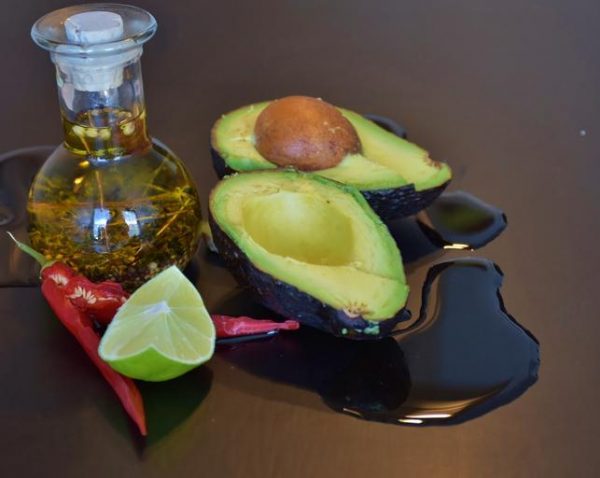Of all the diets out there, the Mediterranean style of eating is the one I think is the most beneficial to your health. This way of eating is loaded with antioxidant-rich fruits and vegetables of all colors of the rainbow. Plus, the nuts, olive oil and fish consumed in this type of diet are all packed with healthy fats.
But there’s one fruit that has never “officially” been part of the Mediterranean diet, even though it fits perfectly with the Mediterranean style of eating. It’s rich and creamy with a mild taste. And it has an even more potent nutrient profile than olives.
I’m talking about the avocado. This tasty fruit is one of my favorite foods, and not just because it tastes good and is easy to add to my meals.
Like olives, avocados are high in fiber, monounsaturated fats, vitamin A and vitamin E. Both of these fruits also have a high content of two powerful antioxidants, lutein and zeaxanthin.
But when it comes to other certain other vitamins and minerals, the avocado actually outshines the olive. This is good news for you, especially if you like avocados as much as I do.
Now, here’s the thing about avocados. They have a high fat content, so most people thinking eating these fruits will make them fat.
That’s not necessarily true. In fact, the monounsaturated fats (MUFAs) found in avocados (and in the Mediterranean way of eating) may help protect against fat – especially abdominal fat accumulation associated diabetes.
You see, eating an American-style diet rich in carbohydrates is directly linked to the accumulation of abdominal fat. But just the opposite is true of a MUFA-rich diet. Eating foods high in monounsaturated fats, like avocados, actually prevents the distribution of fat to your belly.
So that’s one point in favor of getting more avocados in your diet. But there’s more…
Avocados are Great for Your Blood Sugar!
Eating just half of an avocado with your lunch can improve insulin response and lower your blood sugar. These are two of the biggest factors when it comes to storing – or not storing – fat.
When insulin response is poor and blood sugar is high, your cells store extra glucose as fat. But when your blood sugar and insulin response are normal, glucose doesn’t need to be stored as fat. That’s because it’s used for energy, instead.
Additionally, the monounsaturated fats in avocados have an influence on the hormone that tells you you’re full. It works so well that, after eating just half of an avocado, it can reduce your desire to eat by about 40% over the next three to five hours.
Now, it’s pretty common knowledge these days that being overweight increases your risk of heart disease. Diabetes – or insulin resistance – is also associated with a higher chance that heart problems will strike at some point in your life.
So let’s take a look at what the avocado can do for your heart health…
Eating a single avocado each day can improve your cholesterol profile much better than eating a low-fat diet. It doesn’t just lower LDL cholesterol. It also reduces actual number of LDL particles along with the number of small dense particles.
These results are similar to those seen in people eating a Mediterranean style diet. And it’s great news for your heart health.
Getting those small, dense particles under control is especially important. These are the ones that tend to slip through the lining of your blood vessels where they can do the most damage. They become oxidized. Inflammation sets in. Plaque starts accumulating and blockages begin to develop. So the bigger and fluffier your LDL particles are, the better off your heart will be.
This gives you three great reasons to eat more avocados. They can help you lose weight, improve blood sugar and insulin resistance, and help protect your heart health.
How You Can Get the Biggest Health Benefits
Earlier I mentioned that I think avocados should be included in the Mediterranean diet. Just imagine the results!
The Mediterranean way of eating already reduces risk factors for stroke and heart attack. It improves circulation, counters obesity and slashes diabetes. By adding avocado into the mix, the results of eating like a Mediterranean could be even more astounding than they already are. It could potentially amplify the results!
There are many ways to get more avocados in your diet, and not all of them include eating a salad or guacamole.
You can top your broiled fish with chopped avocado, onion and bell peppers just before serving. Dice some up and use it as a topping for your egg scramble. Use avocado in wraps, add it to your smoothies, grill it or eat it right out of the peel.
Get creative, and you’ll find all sorts of ways to become an avocado connoisseur in no time at all.
SOURCES:
Paniagua JA, Gallego de la Sacristana A, Romero I, Vidal-Puig A, Latre JM, Sanchez E, Perez-Martinez P, Lopez-Miranda J, Perez-Jimenez F. Monounsaturated fat-rich diet prevents central body fat distribution and decreases postprandial adiponectin expression induced by a carbohydrate-rich diet in insulin-resistant subjects. Diabetes Care. 2007 Jul;30(7):1717-23.
Wien M, Haddad E, Oda K, Sabaté J A randomized 3×3 crossover study to evaluate the effect of Hass avocado intake on post-ingestive satiety, glucose and insulin levels, and subsequent energy intake in overweight adults. Nutr J. 2013 Nov 27;12:155.
Wang L, Bordi PL, Fleming JA, Hill AM, Kris-Etherton PM. Effect of a Moderate Fat Diet With and Without Avocados on Lipoprotein Particle Number, Size and Subclasses in Overweight and Obese Adults: A Randomized, Controlled Trial. J Am Heart Assoc. 2015;4:e001355




